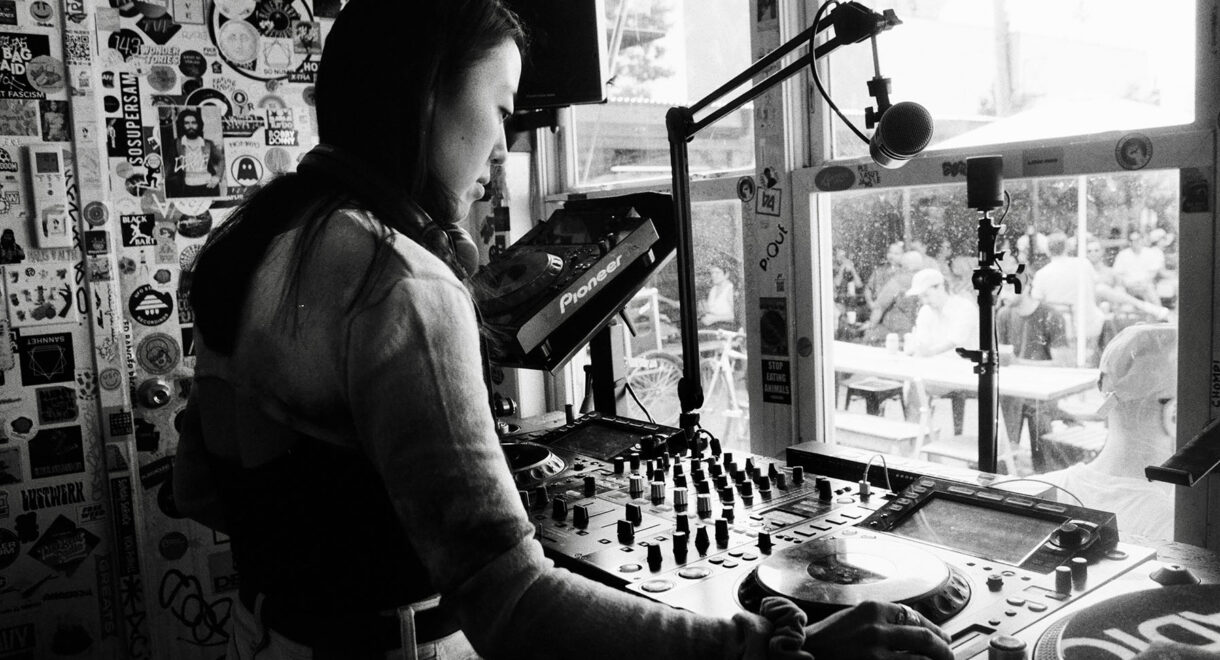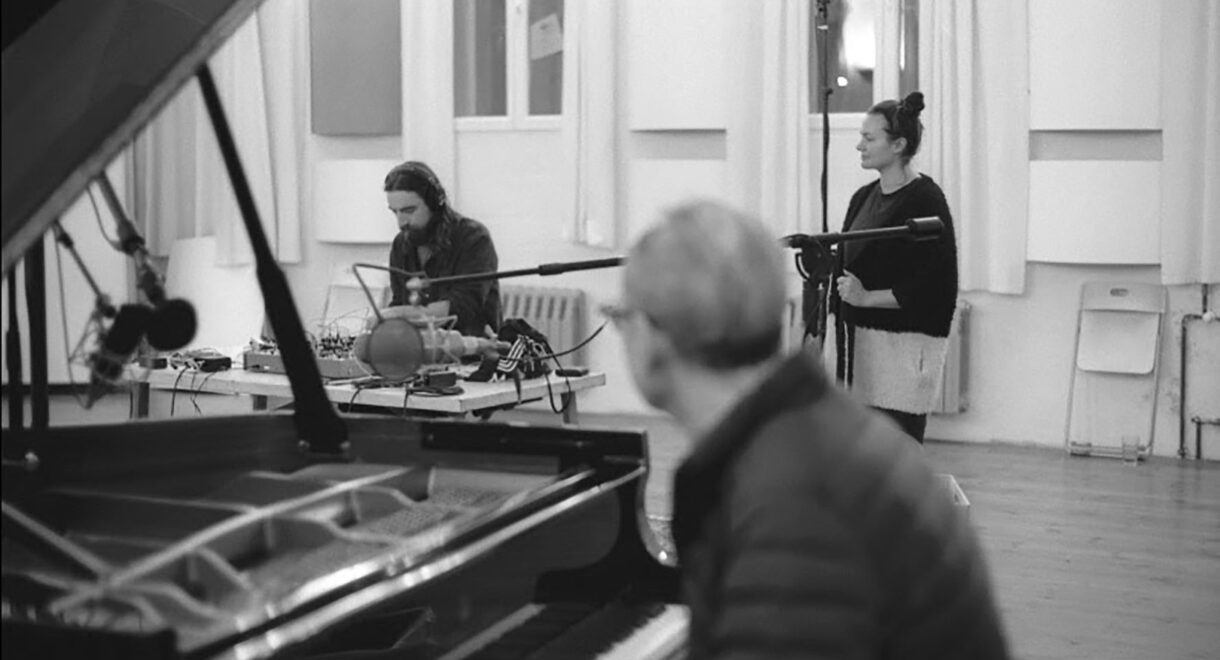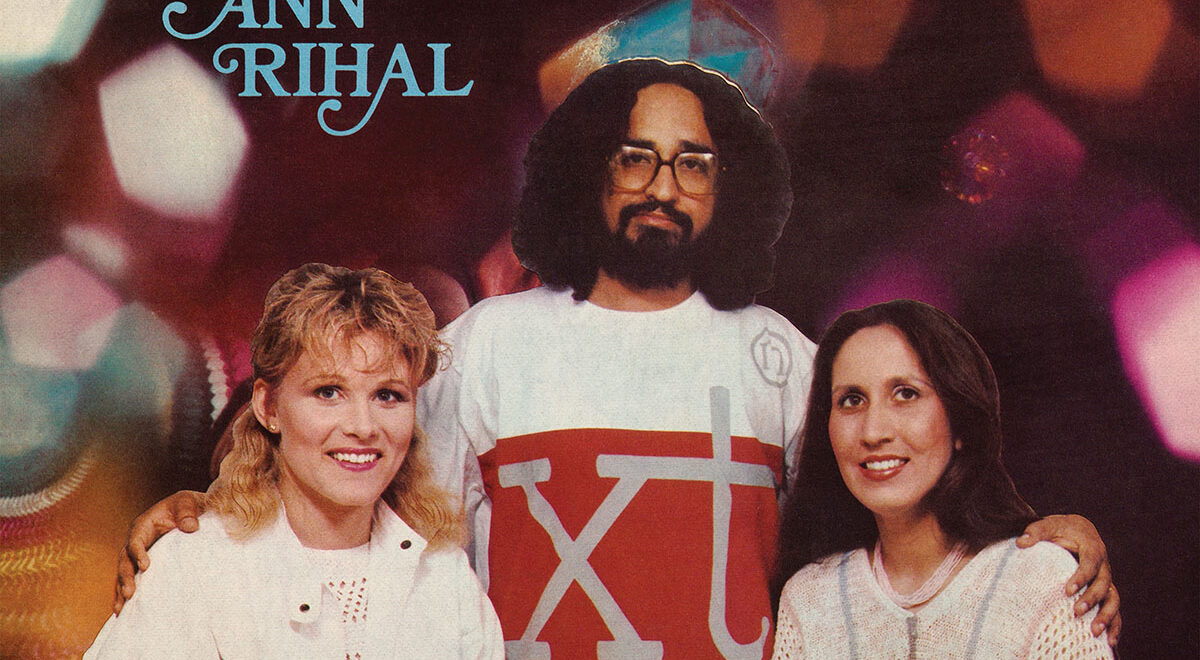Loveshadow’s sophomore album II is out now via Dark Entries. Two of our favorite DJs / musicians from the Bay Area, Anya Prisk and Izaak Schlossman make up […]
Third Eye: The Groundbreaking Indi-pop of Sheila Chandra’s Monsoon

Sitar, tambura, tabla meet synthesizers, Bill Nelson’s e-bow, and the once-in-a-lifetime voice of Sheila Chandra on this Indi-pop essential.
A precursor to the scene of artists featured on Naya Beat’s South Asian Dance And Electronic Music 1983-1992 compilation, Monsoon was a short-lived Indi-pop trio consisting of musician and producer Steve Coe, multi-instrumentalist Martin Smith, and Sheila Chandra, who has been celebrated as “one of the most beautiful voices on earth.” While the use of sitar in Western music can be traced back to the psychedelic ’60s (The Beatles, The Kinks, The Rolling Stones), Monsoon pioneered the first true fusion of East meets West blending traditional Indian music with ’80s synth-pop, long before the term “World Music” would ever be used in Western media.
In 1982, Monsoon’s self-released debut single was distributed by the influential London-based label Rough Trade, and caught the attention of Phonogram’s David Claridge and Dave Bates who signed the group as the first act on their new sub-label Mobile Suit Corporation. “Ever So Lonely” became an unexpected global hit, making history in the process as Chandra (only 17 at the time) became the first South Asian woman to appear on the UK’s “Top of the Pops.”
“It is unique that we are being played on rock shows like Anne Nightingale and Indian programs up and down the country.”
Steve Coe
Monsoon’s lone album Third Eye would arrive in 1983, and remains a groundbreaking and pioneering classic from the Asian Underground in London. Sitar, tambura, santoor, and tabla meet synthesizers, drum machines, and Bill Nelson’s e-bow guitar for a sound that was unlike anything else being released at the time. Album opener “Wings of the Dawn (Prem Kavita)” sets the stage with an Indian raga featuring sitar drone, Chandra’s enchanting vocal, and Indian percussion before soaring into drum machines and electric e-bow.
The group’s cover of The Beatles’ “Tomorrow Never Knows,” more than likely a suggestion from Phonogram executives, is also sublime and lifts the psychedelic ’60s classic into the ’80s with deep percussive grooves. Crucial to mention, besides Chandra, the album also features some of the best Indian instrumentalists including Ravi Shankar disciple Dari Mankoo on sitar, santoor player Deepak Khazanchi, and Punita Gupta.
Monsoon would disband shortly after the release of Third Eye due to conflicts with their label. Chandra and Coe would continue their collaboration through his Indipop label and further develop their Asian fusion sound through Chandra’s solo releases and The Ganges Orchestra. The label would also establish links with artists pursuing similar fusions of sounds including groups like Michael Wadada’s world music collective Suns of Arqa, and the legendary West India Company, a Blancmange spin-off who brought Asha Bhosle’s voice to European dancefloors.
Further listening:










